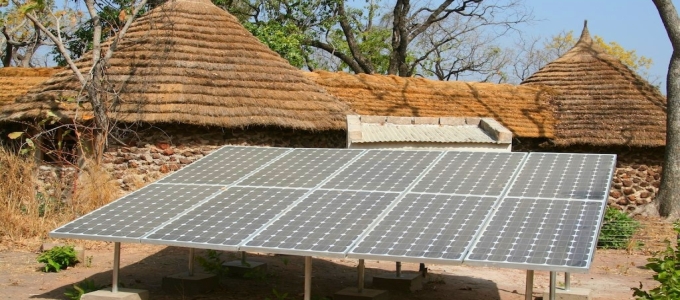A new report looking at the needs of energy poor communities in West Africa reveals misunderstandings of poor people’s needs amongst development banks, aid donors and governments.

Written by energy experts at Practical Action, the Poor People’s Energy Outlook for 2016 found key targets agreed by world leaders to reduce poverty, and bring access to modern energy, will be missed because current planning processes are not fit for purpose.
The report was written using evidence gathered in energy poor communities in Togo, East Africa and Bangladesh and urges politicians and development experts to revisit why and how they take the approach to energy planning and funding that they do.
It also highlights serious inadequacies in most energy poor countries when it comes to confronting the health and environmental impacts of cooking over open fires, which kills more than four million people a year – more than AIDS, TB and malaria combined.
Report author, Dr Lucy Stevens, said: “We have been working with governments in Africa for many years. Some are making progress in bringing reliable energy to all and are to be commended.
“However, in many developing countries, that is not the case. Billions of poor people want and need reliable energy so they can light their house, cook safely, and power fans to keep their homes cool and it is simply unacceptable that many energy ministries and development banks continue to prioritise expensive grids for industries providing little benefit to the wider populace.
“This is often in favour of similarly priced or cheaper distributed energy technologies that can meet the real energy needs of the nation – bringing energy to those still living in the dark, and who are unable to work or learn or live up to their potential because of it.
“While current predictions on continued energy poverty in 2030 make for grim reading, there is still time to do something about it by re-balancing national plans in favour of decentralised solutions. But this must be done now.”
Co-author Aaron Leopold said: “We now need to educate national leaders about how this technological progress must be integrated into national planning and policymaking processes, and for the need to build up the capacities of national workforces to install, maintain, operate and repair these primarily renewable energy systems.
“The most important recommendation in this report is that we should focus on the needs of the end-user instead of perceived priorities determined in capital cities. And the exciting thing that our work has shown is the outcomes of such inverted planning exercises are better in terms of quality at essentially no extra cost.”
This Poor People’s Energy Outlook is the fifth of a series of reports looking at the impact of energy access, and the lack of it, on the lives of poor people throughout the world.
The 2016 report uses data and testimony from a dozen communities across Togo, Kenya and Bangladesh. It will be followed by two more reports, scheduled between now and 2018, on financing for energy access (2017) and scaling up (2018).
Key findings include:
- A head in the sand approach to confronting the impact of cooking over open fires and yet an enthusiasm for clean cooking among the energy-poor
- A ‘grid or nothing’ mentality in much national planning
- A lack of understanding amongst many decision makers of the best technologies and approaches suited to achieving total energy access
- A lack of meaningful efforts to involve the energy poor in discussing what solutions they would like to the problems that affect them
The report makes the following recommendations:
- Cooking and the differing energy needs of men and women must be included in national planning to address household demand for energy and the number of deaths from cooking over open fires.
- Energy access should be addressed via a range of solutions, including the grid, mini grids and stand-alone home systems
- In order to do this we need more investment in capacity – training, provision of tools and equipment for new approaches
- Better education of national government civil servants and decision makers is needed, in terms of the array of energy access solutions available
- Measurement of energy access should not be done simply via number of connections and kilowatt hours, but by looking at levels of energy access needed and achieved and long term social benefits.
